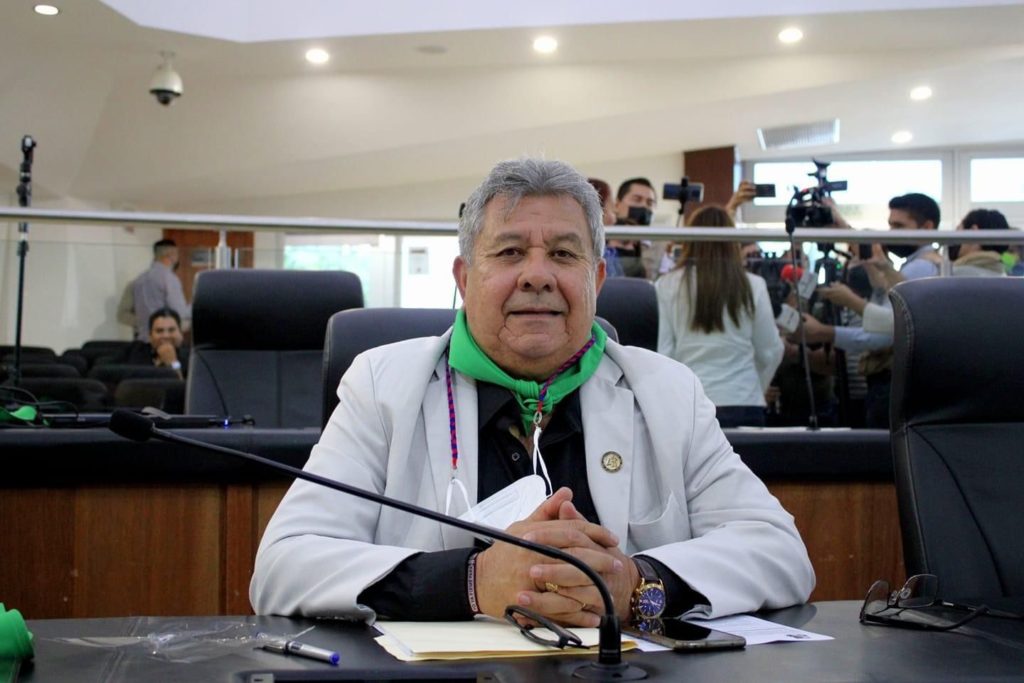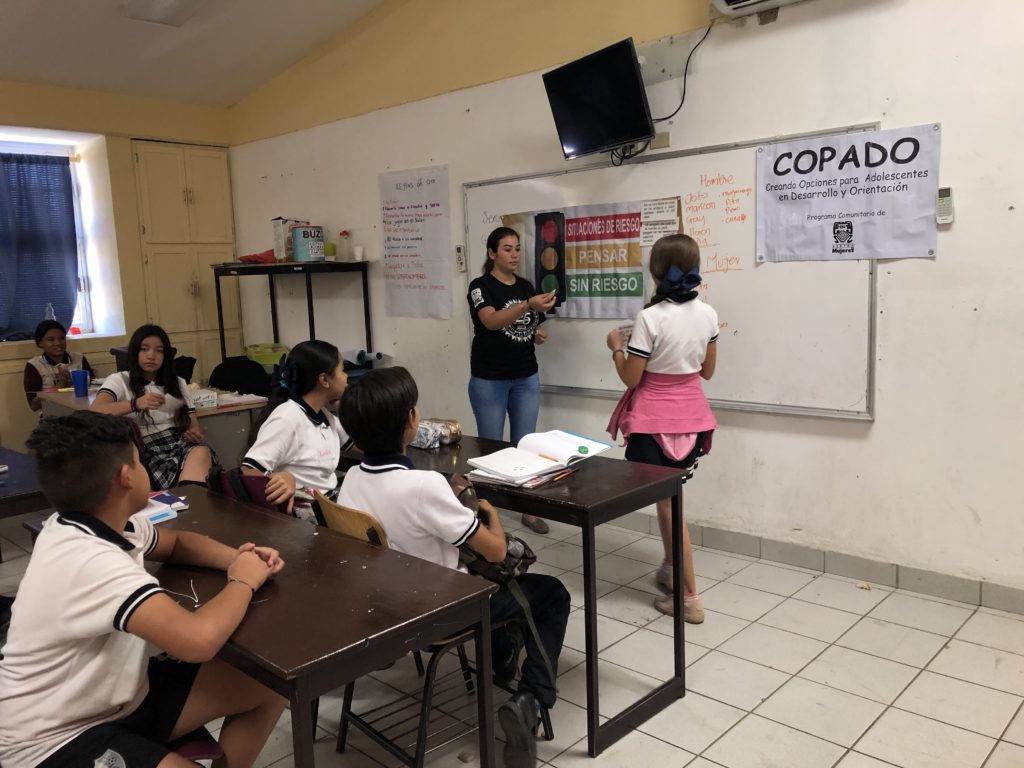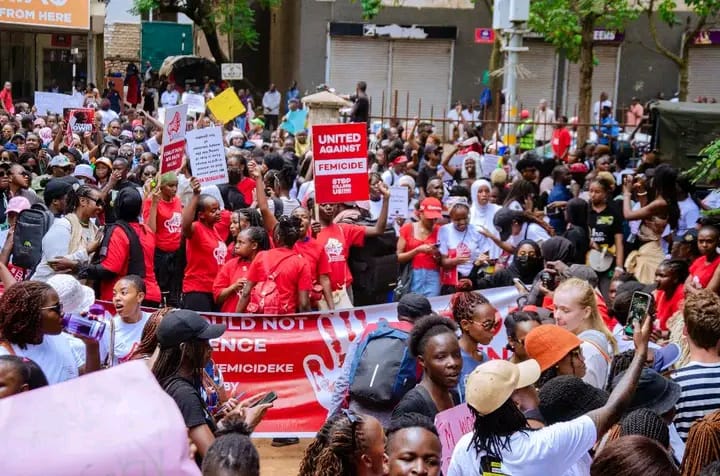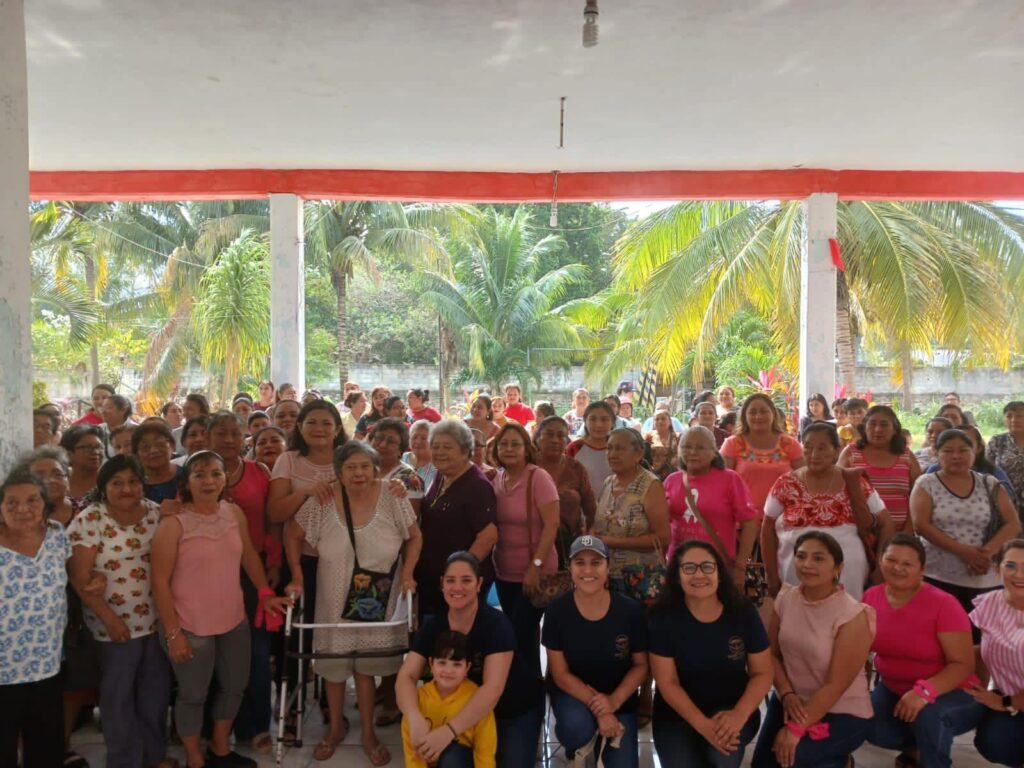How Centro Mujeres helped a school and gained a powerful ally

[This story is a part of a blog series – Return to the main blog]
This case study provides a dynamic example of how Centro Mujeres operates, using the key components above, to create meaningful change on the individual, community, and policy levels.
Baja California Sur maintains a high teen pregnancy rate, which is extremely disruptive to girls’ lives and education. To help, Centro Mujeres created a Pregnancy Prevention Workshop for junior high students completely focused on sexual and reproductive rights. This curriculum, which includes 9 hours of classroom learning for students and 40 hours of training for parents and peer educators, was created with foundation funding and was made available to schools for free.
The next challenge was gaining access to schools. A conservative government was in power, but Teresa and Mónica understood that the government is not an impermeable entity where everyone thinks the same. Besides, no one of good faith could deny the reality of Baja California Sur’s devastatingly high teen pregnancy rate.

Teresa and Mónica approached the Director of Junior High Schools to request access. The Director was familiar with their work: Two leaders from the Education Department had completed Centro Mujeres’ HER diploma program for government leaders. Part of the course required those leaders to conduct community projects within their systems — in this case, the Education Department.
Based on the dire need and his familiarity with Centro Mujeres, the Director of Junior Highs was open to listening. Teresa and Mónica asked, “Let us set up a pilot program to see if we can help,” and the Director used his influence to support the pilot.

Before the program, the school averaged between 10 and 15 teen pregnancies per year. In the year after the program, the school saw only one teen pregnancy. The Director of Junior Highs became a vocal supporter of Centro Mujeres, and the program expanded into other schools.
The relationship did not end there: The Director of the Junior Highs became the State Secretary of Education, then the mayor, a federal senator, and finally, the governor. As mayor, he supported Centro Mujeres’ conferences in Baja California Sur. As a senator, he allowed Centro Mujeres to convene coalition meetings at his home in Mexico City.
“Through that whole process, we were a resource for him around anything related to reproductive and sexual health. And, when he became governor, he recognized us publicly and said, ‘They have been working here forever. They are the resource.’”
When the Director of Junior Highs became Governor, he was ready to act in support of reproductive and sexual rights; and Centro Mujeres — and all the people they had touched over the years — were ready to support him. The passage of DECRETO 2832, decriminalizing abortion in the state of Baja California Sur, became possible because of this relationship.
See how the key components are operating here:
- Centro Mujeres’ connection with external movements and funders grounded the curriculum in a human rights framework and financed its development, allowing them to offer the program to the Education Department for free.
- Their commitment to working at both the community and policy levels enabled them to understand the local need (teen pregnancy), to respond effectively, and then to transform learnings, relationships, and momentum into policy change.
- Centro Mujeres’ used education to develop allies. This is evident throughout the case study. They developed critical consciousness in the adolescents, their parents and peers, government officials, and the Director of Junior Highs. These relationships required consistent connection over years.
- Their engagement with the Director of Junior Highs illustrates the value of refusing to operate as if the government is a one-stop shop. If Monica and Teresa had declined to engage with the Director of Junior Highs because he was a government official (or because he is a man) they would have missed out on the opportunity both to help adolescents immediately and to develop a relationship with the Director that eventually bore amazing fruit.
This effort took years, and no one can do it alone. Teresa and Mónica’s shared leadership – and the work of the entire Centro Mujeres community – was necessary to sustain the initiative and everyone involved. There were no Lone Rangers in the successful effort to pass DECRETO 2832.




